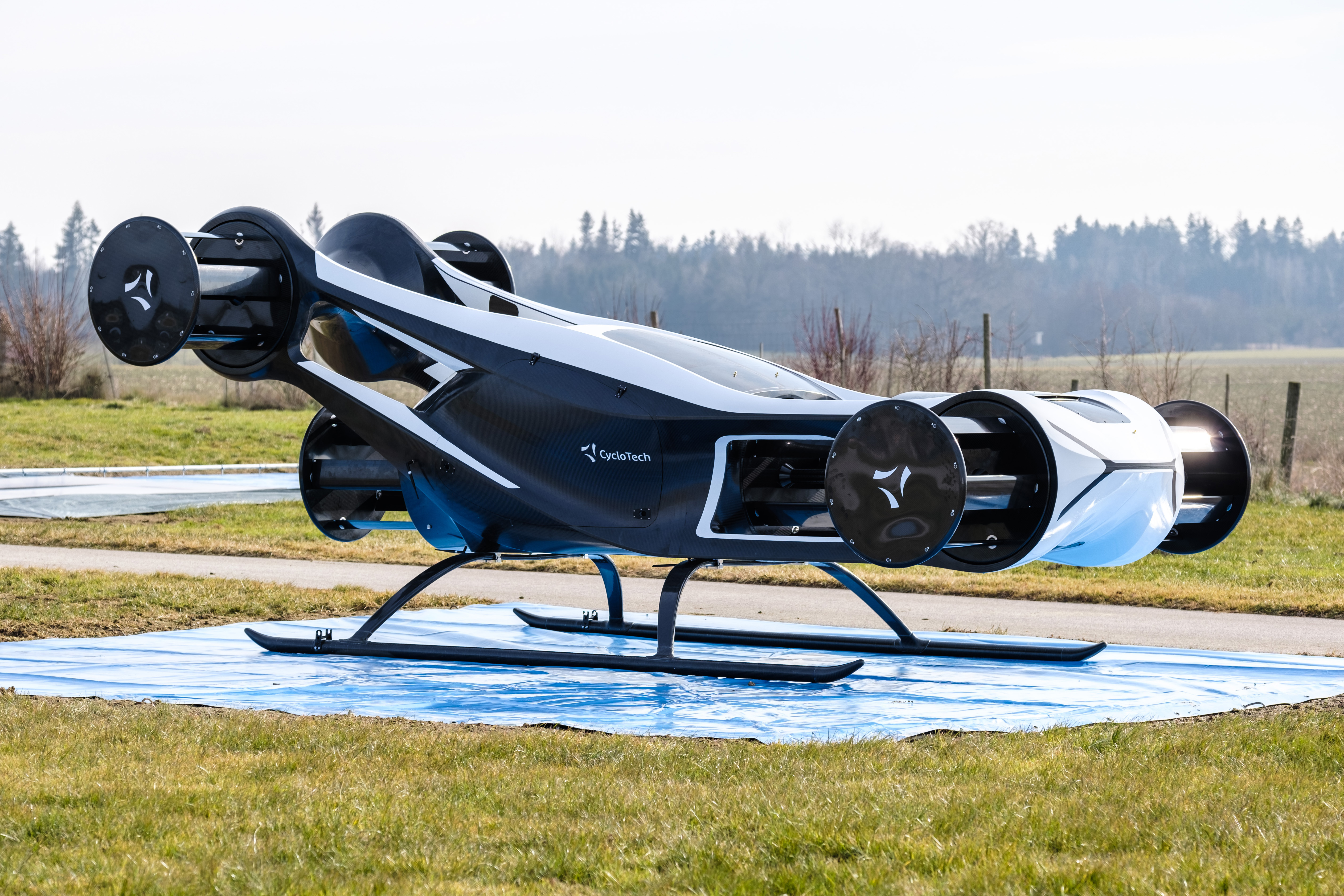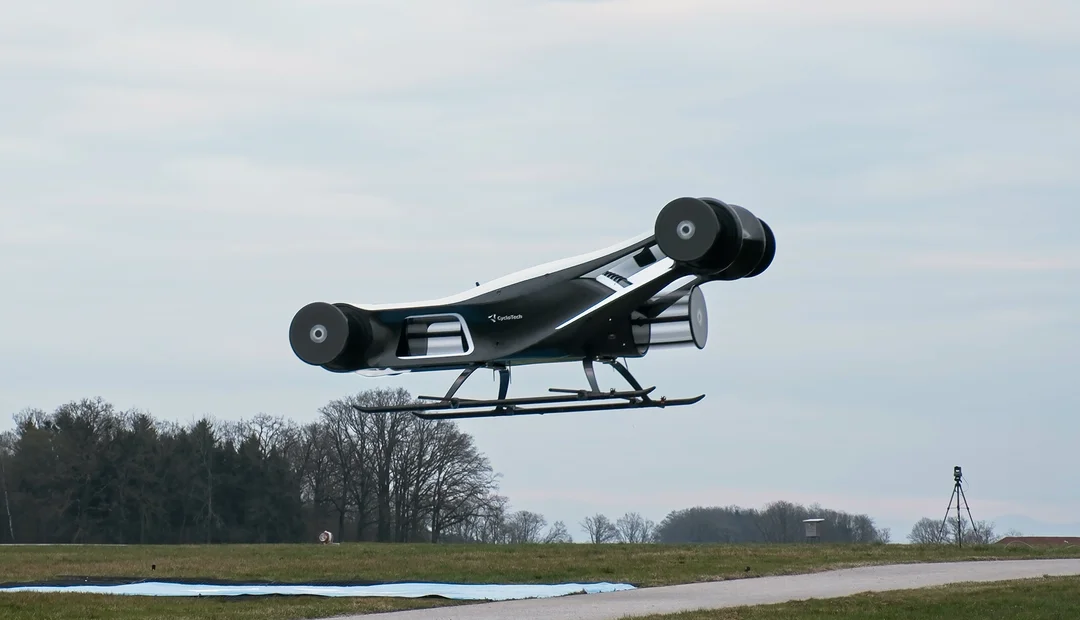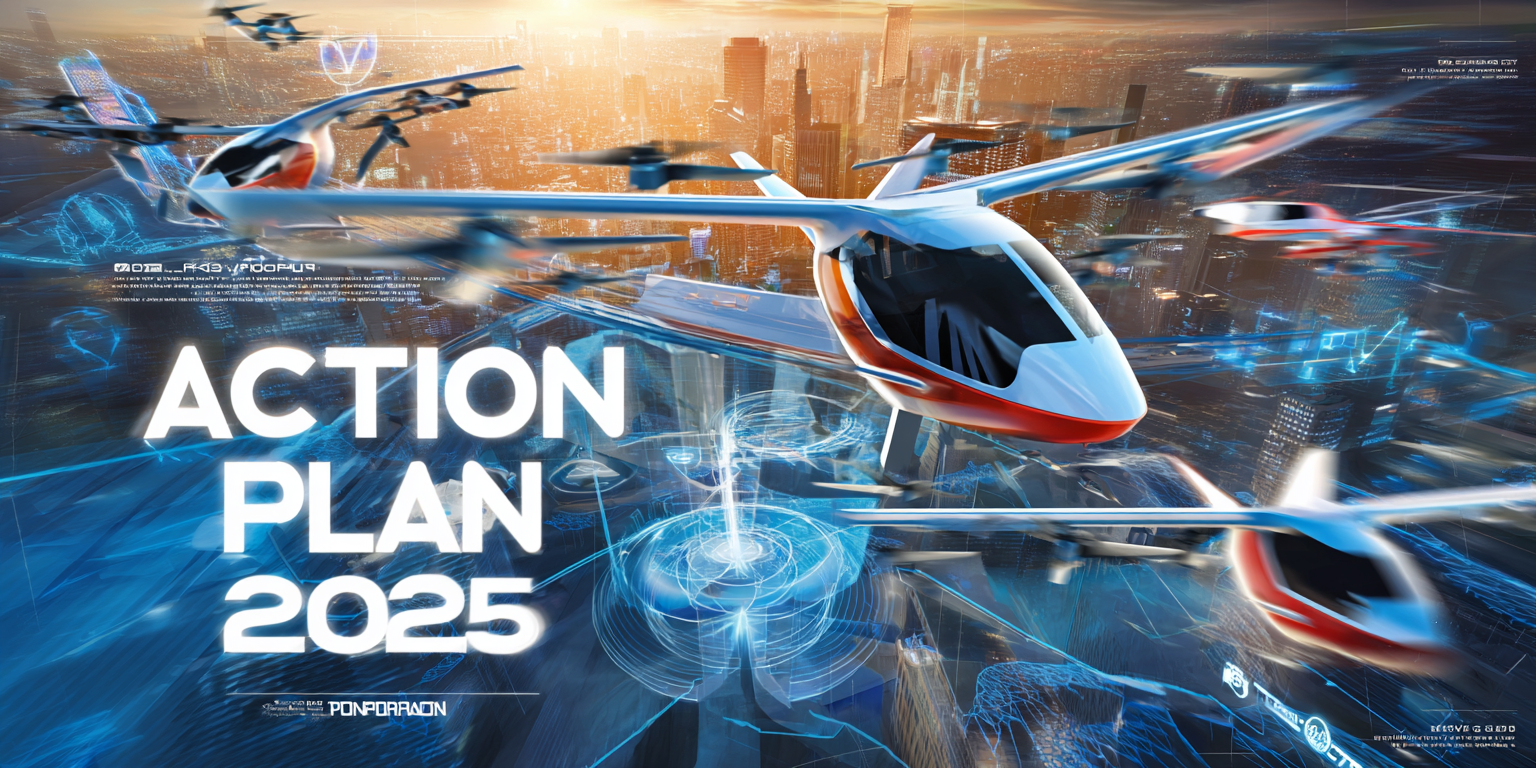CycloTech has successfully wrapped up its summer flight test campaign with the BlackBird demonstrator, marking a critical milestone in validating the accuracy of its flight control system simulations. The Austrian company announced that after extensive simulations using wind tunnel data and comparing them with real-flight test results, they confirmed their flight control system simulations accurately replicate the real-world behavior of the BlackBird demonstrator.
Simulation-to-Reality Validation Achievement
This validation achievement represents more than technical progress—it demonstrates that CycloTech’s digital twin capabilities are mature enough to predict real-world aircraft behavior. The successful comparison between simulated and actual flight data provided the engineering team with confidence to complete the summer test campaign and proceed to the next development phase.
Pedro Carrasco Laraña, Flight Test Engineer at CycloTech, captured the significance of this accomplishment: “After numerous model-in-the-loop simulations, system checks, ground tests, and flight tests, seeing the BlackBird flight control system perform as expected was incredibly rewarding. This achievement marks a significant step toward realising highly manoeuvrable flight”.
Background: CycloTech’s Development Journey
Founded in Austria in 2004, CycloTech has spent over two decades developing CycloRotor technology based on the Voith-Schneider Principle. The company has grown from a small research operation to a 65-person international engineering team with facilities in Linz, Austria, and Munich, Bavaria.
The technological foundation stems from cycloidal rotor concepts dating back nearly a century, but CycloTech has adapted this maritime propulsion technology specifically for aviation applications. Through seven generations of development, the company has created a propulsion system capable of 360-degree thrust vectoring, enabling aircraft to maneuver in ways conventional propulsion cannot match.
CycloTech has accumulated substantial flight testing experience, completing over 800 successful flights with earlier technology demonstrators since beginning indoor testing in 2021. The company transitioned to outdoor testing in 2023 under EASA authorization, systematically exploring the flight envelope of its CycloRotor technology.
BlackBird Technical Specifications and Capabilities
The BlackBird demonstrator represents the current pinnacle of CycloTech’s technology development. Weighing 340 kilograms with dimensions of 4.9 meters in length, 2.3 meters in width, and 2.0 meters in height, the aircraft serves as a comprehensive testbed for sixth-generation CycloRotor systems.
| Specification | Value |
| Maximum Take-off Weight | 340 kg (750 lbs) |
| Dimensions - Length | 4.9 m (16 ft) |
| Dimensions - Width | 2.3 m (7.5 ft) |
| Dimensions - Height | 2.0 m (6.5 ft) |
| Maximum Speed | 120 km/h (75 mph) |
| Propulsion System | Electric CycloRotors |
| Number of CycloRotors | 6 |
| CycloRotor Generation | 7th Generation |
| Power Source | Battery Packs |
| Flight Capabilities | VTOL, Hover, Mid-air Braking, Parallel Parking, Precision Landing |
| Hover Pitch Angle | Up to 30° |
| Development Timeline | 11 months (April 2024 - March 2025) |
| First Flight Date | March 27, 2025 |
| Weight Class | Light eVTOL Demonstrator |
| Configuration Type | Six-rotor distributed propulsion |

The demonstrator incorporates six seventh-generation CycloRotors, two more than previous configurations, arranged to exploit 360-degree thrust vectoring capabilities fully. This unique setup enables vertical takeoff and landing, hovering with pitch angles up to 30 degrees, mid-air braking, parallel parking maneuvers, and precision landing operations even in adverse weather conditions.
CycloRotor technology operates through a series of propeller blades mounted on rotating disks, with each blade continuously adjusting its pitch angle throughout the rotation cycle. This provides thrust control in any direction perpendicular to the rotation axis, enabling smooth transitions between vertical and horizontal flight without the need for complex tilting mechanisms.
Flight Control System Development Approach
The validation success stems from CycloTech’s sophisticated development methodology, which combines digital twins with systematic testing protocols. Using Siemens Xcelerator software platforms, the company creates digital twins of each design iteration, allowing for extensive verification without the need for physical prototypes.
The flight control system development followed aerospace industry best practices, incorporating model-in-the-loop simulations, software-in-the-loop testing, and hardware-in-the-loop validation phases. This systematic approach enables engineers to identify and resolve potential issues before flight testing, thereby reducing risk and development time.
CycloTech’s emphasis on simulation accuracy proved critical for the BlackBird program. The company invested significantly in wind tunnel testing and computational fluid dynamics modeling to ensure their digital models accurately represented real-world aerodynamics. This foundation enabled the successful correlation between simulation and flight that characterized the summer test campaign.
Strategic Implications and Market Positioning
The simulation validation achievement positions CycloTech advantageously in the competitive eVTOL market. Unlike companies relying primarily on hardware iteration, CycloTech can now confidently use simulations to guide design decisions, accelerating development cycles and reducing costs.
CEO Marcus Bauer has positioned the company as a supplier of propulsion systems rather than an aircraft manufacturer, focusing on providing CycloRotor technology to original equipment manufacturers. This strategy has attracted significant investment, with the company securing €20 million in funding in 2024 and planning additional rounds to reach a total of €53 million.
The company has established partnerships demonstrating market interest in CycloRotor technology. The collaboration with Yamato Holdings for cargo eVTOL applications reflects the technology’s versatility in logistics operations that require precise positioning and maneuverability.
Next Steps and Development Roadmap
Following the successful summer campaign, CycloTech enters the next phase of BlackBird development with validated simulation capabilities providing a foundation for accelerated progress. The company can now utilize digital twins with confidence to explore extended flight envelopes and optimize system performance without the need for extensive physical testing.
The immediate focus is on preparing CycloRotor technology for certification by the European Aviation Safety Agency. CycloTech has already received operational authorization for outdoor flights under EASA regulations, positioning the company favorably for eventual commercial certification processes.
Commercial applications appear diverse and promising. The validated flight control system opens up possibilities for applications in logistics, construction, defense, and urban air mobility, where precise maneuvering capabilities provide a competitive advantage. The company’s manufacturing approach, utilizing Siemens Xcelerator platforms, enables the scalable production of CycloRotors in various sizes for different applications.
CycloTech’s successful summer test campaign represents more than just technical validation—it demonstrates a mature development capability that combines sophisticated simulation tools with systematic flight testing. For an industry focused on bringing eVTOL aircraft to market, CycloTech’s approach offers a potentially more efficient path from concept to certification.
The correlation between simulated and actual flight performance validates not just the BlackBird design, but CycloTech’s entire digital development methodology. This capability positions the company to accelerate future development programs while maintaining the high safety standards required for aviation certification.
As Pedro Carrasco Laraña noted, seeing the flight control system perform exactly as predicted represents a significant step toward highly maneuverable flight. With validated simulation capabilities and successful flight testing behind them, CycloTech moves forward with the confidence that its digital twins accurately predict real-world performance, enabling more ambitious development goals and faster progress toward commercial applications.




